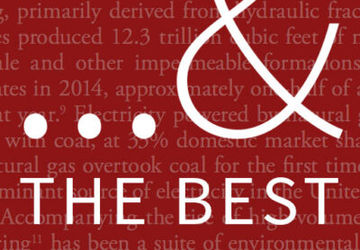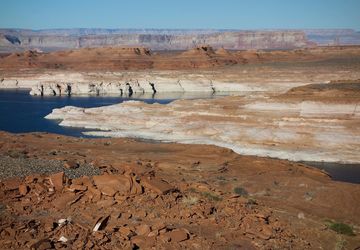The Bill Lane Center for the American West, in collaboration with the office of the Vice Provost for Undergraduate Education (VPUE), offers on-campus research opportunities for Stanford undergraduates to work with faculty on projects related to the American West. We welcome students from a wide variety of disciplines engaged with issues related to western land and life in the United States, Canada, and Mexico. We are looking for part-time or full-time research assistants for this summer. Interested candidates should email a brief cover letter, CV and transcript to irishui [at] stanford.edu (subject: Summer%20research%20positions%20at%20the%20BLC) (Iris Hui).
Full-time positions
Summer: 10 weeks; 40 hours/week. Dynamic stipend to be determined by VPUE.
Part-time positions
Summer: 10 weeks; 10-20 hours/week.
POSITION 1
The project examines environmental justice and public participation in the California Air Resources Board (CARB). We are looking for student(s) with experience with machine learning, artificial intelligence, and Google Cloud Platform tools.
Main duties:
- webscraping
- create database from paper records or websites
- Google Cloud Platform experience
Desired knowledge and skills:
- text mining, NLP
- familiarity with regular expressions
- R or python programming experience
POSITION 2
The Lane Center is looking for an undergraduate student to work part time or full time as a research assistant. This student would be working on a case study of the organization, emergence, and development of the recently created Marin County Fire District.
The ideal candidate is someone who pays attention to details, possesses good writing skills, and enjoys conducting interviews and other qualitative research activities.
POSITION 3
Project title: Using remote sensing to understand the impact of a land use transition on tree cover dynamics in the Northern Rocky Mountains
Lead advisor: Briana Swette (PhD Candidate, E-IPER)
The project is part of the Land Change Lab led by Dr. Eric Lambin (ESS)
The dynamic interface between forest and rangelands over time is an important facet of global change, and many factors simultaneously drive shifts over time. Forests in the American West are under pressure as past histories of logging and fire suppression collide with increasing incidence of drought, catastrophic wildfire, and disease pressure due to climate change. Simultaneously, Western rangelands are being transformed by land use change and shrub and tree encroachment that consequently impacts biodiversity, carbon balance, hydrology, forage quality, and fire regimes. This project uses a natural experiment approach and remote sensing methods to investigate how the decline in extensive livestock grazing has impacted tree cover and encroachment into rangelands in the Northern Rocky Mountains since 1940 within a broader context of global change.
We are looking for a research assistant to support an analysis of tree cover change using remote sensing techniques on historical and current aerial images. Previous experience with (or strong desire to learn) GIS, R, and/or image analysis software (e.g. ENVI, Google Earth Engine, eCognition) is required. The student will assist in spatial data preparation, implementing image analysis routines, and statistical analysis. The work will be done remotely. Opportunities to continue work during the 2021-2022 academic year might be available. This is a great opportunity for students interested in remote sensing, GIS, landscape ecology, rural geography, and coupled human-natural systems.
POSITION 4
Sawtooth National Forest – Sawtooth National Recreation Area
Remote Sensing Projects (No Field Work Required)
Cheatgrass Infestation and Hotspot Detection via DESI
Project Summary: Detection of Early Season Invasives (DESI) software was developed by the USGS to detect invasive annual grasses using Landsat data. The software has had marked success in the western United States, particularly on the Colorado Plateau (Bishop et al. 2019) detecting cheatgrass infestations on rangelands. In recent years the districts within the North Zone of Sawtooth National Forest, namely Fairfield and Ketchum Ranger Districts and the Sawtooth National Recreation Area, have been experiencing an increase in cheatgrass infestations. However, there is a discrete lack of accurate inventory data to inform the size and frequency of these infestations due to limitations in time and available personnel. This project would utilize DESI to generate a model of cheatgrass infestations within the Sawtooth National Recreation Area as a baseline dataset for addressing current and potential infestations. Furthermore, a species distribution model (SDM) would be developed utilizing relevant biotic and abiotic variables to further inform the DESI model and assist in early detection rapid response (EDRR) actions on cheatgrass.
Desired Project Deliverables:
DESI model
- Raster output
- Vector polygons of potential infestations
SDM model
- Raster output
- Input variable details (i.e., source (e.g., PRISM) and type (e.g., monthly precipitation)
Detailed instructions on generation of both DESI and SDM outputs
- Procedure should be repeatable by land managers on an annual or multi-year basis
Procedure for ground-truthing
- Description of data collection methods (i.e., GPS location, presence/absence of cheatgrass, pictures, etc.)
- Directions for packaging/delivering data to principal investigator
POSITION 5
Distributional Impacts of California Community Choice Aggregations
California's energy system is in the midst of a rapid transformation. The state has ambitious policy goals for clean energy, which must be balanced with questions of customer affordability and reliability. Over the past 10 years, over 11 million Californians have left their utility in favor of joining a Community Choice Aggregator (CCA), which often promises greener power at lower or equal cost. This summer RA-ship is an exciting opportunity to learn about an increasingly significant player in statewide energy policy and contribute towards understanding the electricity system of the future.
Select summer projects may include:
- Conducting spatial mapping of CCA boundaries and working with census data
- Analyzing California Energy Commission data on renewable energy procurement and contracts
- Characterizing CCA initiatives to improve clean technology access and energy equity
- Advancing knowledge around CCA decision-making in the context of system planning
Prior experience in GIS, data scraping, and/or working with big datasets is preferred; however, any student with an interest in clean energy or California policy is encouraged to apply.
POSITION 6
Professor Mo Fiorina’s State Emergency Powers project is seeking help with research on emergency management and government agencies. We are looking for students who can work part time or full time as a research assistant. The student(s) would be working on a dataset about the history and politics of how government agencies respond to emergencies at the state and local level. Additional work may include case studies, building new datasets from news articles, and interviewing government officials.
The ideal candidate is attentive to detail, possesses good writing and data handling skills, and has experience with online research on the law, public policy, and/or U.S. history.



